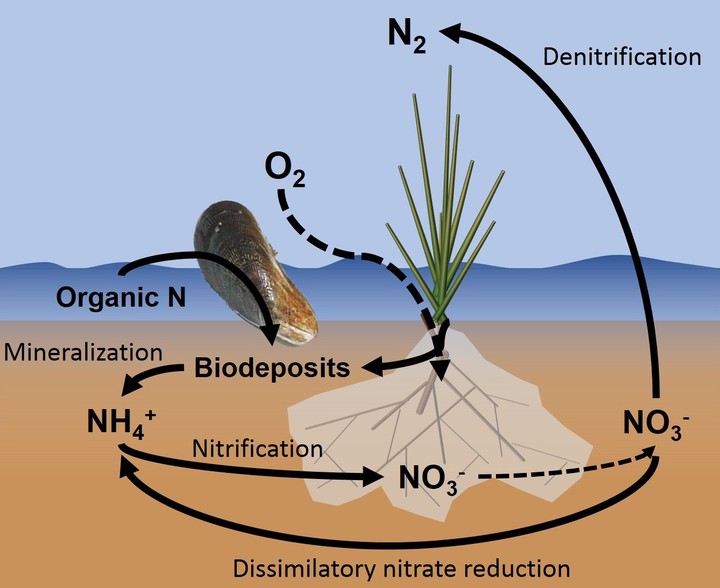Ribbed mussels *Geukensia demissa* enhance nitrogen-removal services but not plant growth in restored eutrophic salt marshes

Abstract
Salt marshes are decreasing worldwide. Restoration projects address marsh loss, yet it remains unclear how well restored marshes grow, expand, and function in eutrophic waters. Here, we explored how a facultative mutualism between Atlantic ribbed mussels Geukensia demissa and cordgrass Spartina alterniflora may enhance marsh growth and nitrogen cycling in a eutrophic setting. We created experimental plots in Jamaica Bay, NY, that contained live mussels, mussel shells, or no mussels (control). After 9 wk, we measured sediment and plant characteristics. We also collected sediment cores for use in continuous flow-through incubations with ambient site water and water enriched with stable isotope-labeled nitrate (^15^NO_~3~^-^). Denitrification in marsh plots with live mussels was significantly higher than the other treatments. Live mussels likely enhanced denitrification as biodeposits increased sediment organic carbon and anaerobic conditions. Mussel treatments did not impact cordgrass growth, possibly due to the eutrophic conditions of our study system or the duration of our trials. Ribbed mussels may be a valuable addition for salt marsh restoration projects in eutrophic estuaries since they increase the ecosystem service of nitrogen removal. Future work should focus on long-term effects of ribbed mussels on nitrogen removal and cordgrass biomass in restored marshes to determine how the mutualism impacts restoration success as sites age.